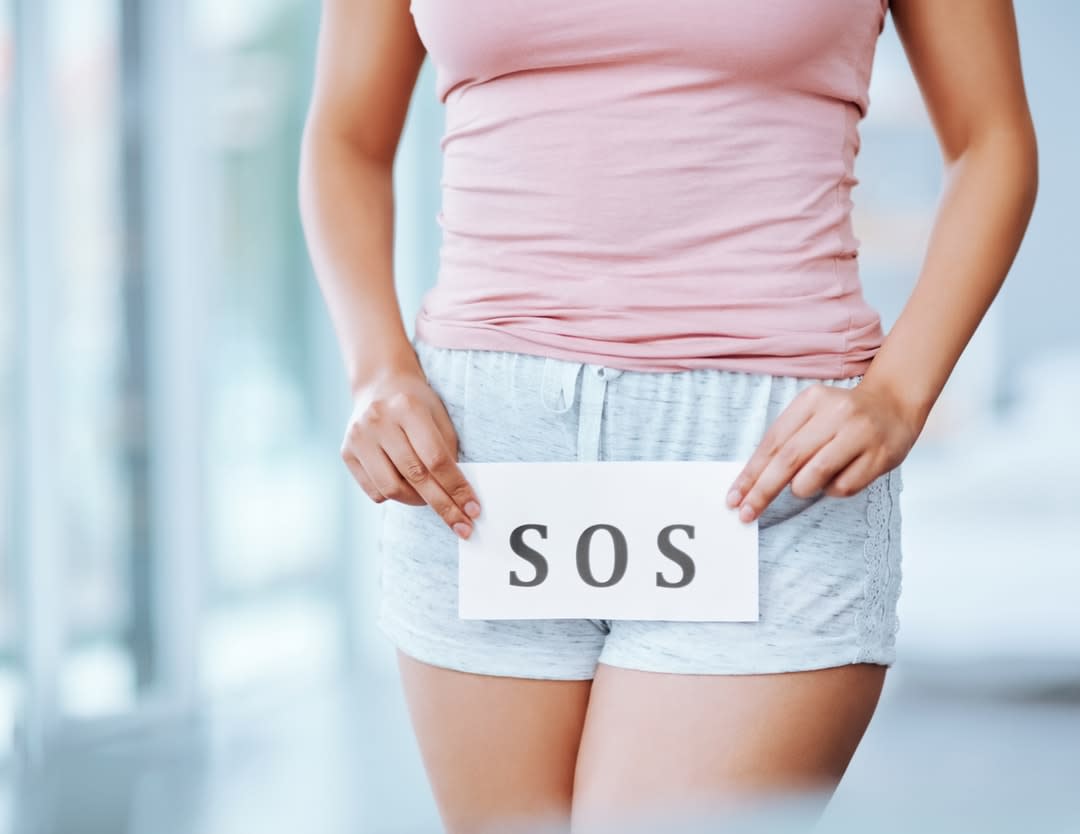
Lady time. Aunty Flo. On the rag. Period.
We’re not good at talking directly about menstruation. Hidden behind our embarrassment is a cultural stigma that results in gender inequality and causes real harm to women, girls and those who menstruate when they miss school, work and recreation activities.
Today, on international Menstrual Hygiene Day, we consider the challenges that menstruating school students face in Australia.
What is period poverty?
Period poverty is the term used to describe the inability to access necessary sanitary products, impacting on school attendance, employment attainment and health.
Read more: Does anyone have a pad? TV is finally dismantling the period taboo
Even in wealthy Australia, period poverty undermines gender equality and human rights for vulnerable school students. This can be due to students simply not having sanitary products or schools not having private toilets or bathrooms with running water, so students stay at home to manage their periods without embarrassment. In turn, missing school means students can fall behind, which compromises later employment opportunities.
What’s being done to address period poverty?
Women’s groups and NGOs such as Share the Dignity, Plan International Australia and WaterAid have been calling for change to eradicate period poverty for nearly two decades.
We’ve made progress since 2019, with the removal of GST from sanitary products, and the Victorian government commenced the rollout of free sanitary product dispensing machines in every Victorian government school, with NSW and SA set to follow suit in 2021. The programs have been rolled out to address the impact of period poverty and menstrual stigma on adolescents' education.
But are these programs making a difference?
Key research in Australia has focused on interviews with school staff, with the Reducing Period Poverty in Australia report demonstrating that school staff believed vending machines with free sanitary products would positively address menstrual stigma, improve menstrual health, and result in a decrease of absenteeism.
Staff believe this initiative provides an opportunity for schools to discuss menstrual management and hygiene, and that government programs increase understanding of the issues among parents and communities.

Studies in the UK and Scotland, however, suggest that providing free products alone is not enough, with feedback from students indicating there are a range of other factors that influence their attendance at school when menstruating, such as the stigma associated with menstruation, and hygiene practices.
This is supported by an Australia-wide survey of students that identified additional factors such as menstrual pain and a lack of education about menstrual health.
A study involving Indigenous communities indicated that factors such as the lack of a private toilet or bathroom facility with running water, as well as the limited capacity of local health services, are also contributing to students’ ability to manage menstruation safely and feel comfortable attending school.
Research into period poverty and menstrual stigma is in its infancy. A Monash University research team is about to seek funding to conduct a mixed-methods pilot study to understand Victorian school students’ perceptions of the effectiveness of free sanitary products in schools.
What’s missing from the current research?
Missing from the discussion are the voices of girls and students who menstruate. The Monash research team aims to address this knowledge gap.
Current research on this issue is focused on the perspectives of adults, and while it’s valuable to know the experience and understanding of teachers, school administrators and parents, this only portrays part of the story. It’s important to know how students experience the provision of free sanitary products in schools, and how it affects their participation in school (if at all).
It’s also important to know whether issues other than a lack of sanitary products are impacting students’ experiences of menstruation at school.
The WHO and UNICEF definition of menstrual hygiene management (MHM) encompasses some of the social barriers to good MHM. These include stigma about menstruation (including bullying and harassment), and a lack of knowledge among students about menstruation. Furthermore, there’s research that suggests that period pain, excessive or unpredictable bleeding, fatigue and PMS impacts students, but it’s unclear whether this is related to a lack of sanitary products in schools.

In gathering students’ perspectives about the Victorian government initiative to provide free sanitary products, it’s imperative that the diversity among students is taken into account.
For example, whether a student lives in a remote, regional or urban setting; identifies as transgender/non-binary or cis-gendered; comes from a low or high-income household; comes from a CALD household; has a disability; or is concerned about how the environment and sustainability could impact their experience of period poverty, and programs to address this.
Diverse students’ voices need to be amplified to ensure that interventions in schools can effectively tackle the issues of poor menstrual hygiene management, including period poverty.
Want to help end period poverty? Support the pilot program. You can get in touch with the research team by contacting Dr Megan Adams at Megan.Adams@monash.edu or Associate Professor Heli Askola at Heli.Askola@monash.edu.





